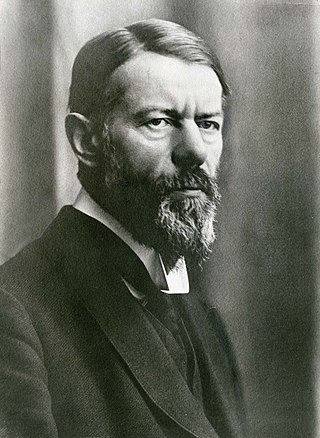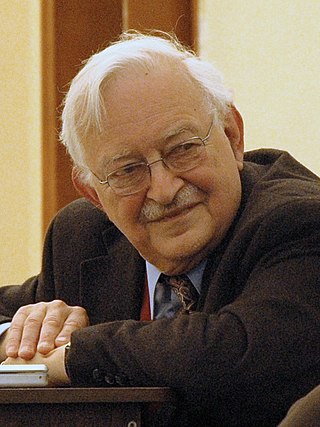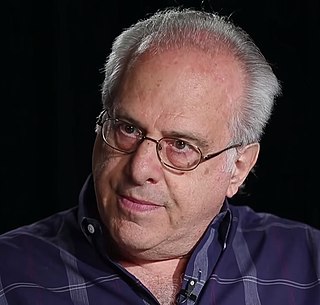Analysis
Based on the author's Castle Lectures at Yale, the book is a sociological study of the influence of the New Economy on human relationships. Sennett describes the transformations that have taken place in postmodern capitalism as corporations have become more diffuse, unstable, and decentered. Contrasted with the 'iron cage' bureaucracy described by Weber – those pyramid-like corporate structures in which individuals knew their place and planned their futures – modern corporations provide no long-term stability, benefits, social capital, or interpersonal trust.
Sennett first looks at bureaucracy in early capitalism. Most businesses were short lived and unstable. However, in the latter half of the 19th century, business was modelled on predictable military lines where all roles were defined and career progression could be mapped out. This new model aimed at social inclusion, that is, most would work at the base of the social pyramid, hopefully progressing to the tip.
Modern capitalism looks at this model with disdain – too many superfluous people are employed to remain competitive and people should constantly adapt and prove themselves to be assets. Therefore, in large modern businesses, the majority of workers face uncertainty and find it difficult to conceive of a life narrative. Due to mechanization and the need for upskilling, managers as well as their subordinates face the possibility of obsolescence. Concepts such as craftmanship and getting the job right are seen as wasteful and somewhat obsessive.
Capitalism's need for potential is increasingly reflected in the education system. SATs favour superficial and adaptive reasoning rather than deeper introspection on the meaning of things. Finally, comparisons are made between branding and politics. Products such as cars are physically very similar, but branding creates differences on minor issues revolving around appearance and emotion. Sennett views this same 'goldplating' process as having a largely negative influence on modern politics where presentation is key.

Maximilian Carl Emil Weber was a German sociologist, historian, jurist, and political economist who was one of the central figures in the development of sociology and the social sciences more generally. His ideas continue to influence social theory and research.

Social science is one of the branches of science, devoted to the study of societies and the relationships among individuals within those societies. The term was formerly used to refer to the field of sociology, the original "science of society", established in the 18th century. In addition to sociology, it now encompasses a wide array of academic disciplines, including anthropology, archaeology, economics, geography, linguistics, management, communication studies, psychology, culturology and political science.

An organization or organisation, is an entity—such as a company, or corporation or an institution, or an association—comprising one or more people and having a particular purpose.

Anthony Giddens, Baron Giddens is an English sociologist who is known for his theory of structuration and his holistic view of modern societies. He is considered to be one of the most prominent modern sociologists and is the author of at least 34 books, published in at least 29 languages, issuing on average more than one book every year. In 2007, Giddens was listed as the fifth most-referenced author of books in the humanities. He has academic appointments in approximately twenty different universities throughout the world and has received numerous honorary degrees.

Peter Ludwig Berger was an Austrian-born American sociologist and Protestant theologian. Berger became known for his work in the sociology of knowledge, the sociology of religion, study of modernization, and theoretical contributions to sociological theory.

Environmental sociology is the study of interactions between societies and their natural environment. The field emphasizes the social factors that influence environmental resource management and cause environmental issues, the processes by which these environmental problems are socially constructed and define as social issues, and societal responses to these problems.

Immanuel Maurice Wallerstein was an American sociologist and economic historian. He is perhaps best known for his development in sociology of world-systems approach. He was a Senior Research Scholar at Yale University from 2000 until his death in 2019, and published bimonthly syndicated commentaries through Agence Global on world affairs from October 1998 to July 2019.

The Protestant Ethic and the Spirit of Capitalism is a book written by Max Weber, a German sociologist, economist, and politician. It began as a series of essays, the original German text was composed in 1904 and '05, and was translated into English for the first time by American sociologist Talcott Parsons in 1930. It is considered a founding text in economic sociology and a milestone contribution to sociological thought in general.

Institutional economics focuses on understanding the role of the evolutionary process and the role of institutions in shaping economic behavior. Its original focus lay in Thorstein Veblen's instinct-oriented dichotomy between technology on the one side and the "ceremonial" sphere of society on the other. Its name and core elements trace back to a 1919 American Economic Review article by Walton H. Hamilton. Institutional economics emphasizes a broader study of institutions and views markets as a result of the complex interaction of these various institutions. The earlier tradition continues today as a leading heterodox approach to economics.
The culture of capitalism or capitalist culture is the set of social practices, social norms, values and patterns of behavior that are attributed to the capitalist economic system in a capitalist society. Capitalist culture promotes the accumulation of capital and the sale of commodities, where individuals are primarily defined by their relationship to business and the market. The culture is composed of people who, behaving according to a set of learned rules, act as they must act in order to survive in capitalist societies.

Sociology as a scholarly discipline emerged, primarily out of Enlightenment thought, as a positivist science of society shortly after the French Revolution. Its genesis owed to various key movements in the philosophy of science and the philosophy of knowledge, arising in reaction to such issues as modernity, capitalism, urbanization, rationalization, secularization, colonization and imperialism.
Social threefolding is a social theory which originated in the early 20th century from the work of Rudolf Steiner. Of central importance is a distinction made between three spheres of society – the political, economic, and cultural. The idea is that when economy, culture, and polity are relatively independent of one another, they check, balance, and correct one another and thus lead to greater social health and progress. This is not to be confused with laissez-faire economics. Steiner was concerned rather that businesses should not be able to buy favorable laws and regulations, and that governments should regulate the economy and protections for workers impartially and not be corrupted by participating in business. "A sphere of life calls forth interests arising only within that sphere. Out of the economic sphere one can develop only economic interests. If one is called out of this sphere to produce legal judgements as well, then these will merely be economic interests in disguise.". Social threefolding aims to foster:

Richard Sennett is the Centennial Professor of Sociology at the London School of Economics and former University Professor of the Humanities at New York University. He is currently a Senior Fellow of the Center on Capitalism and Society at Columbia University. Sennett has studied social ties in cities, and the effects of urban living on individuals in the modern world.

Ludwig Heinrich Edler von Mises was an Austrian–American economist, logician, sociologist, and philosopher of economics of the Austrian school. Mises wrote and lectured extensively on the societal contributions of classical liberalism and the power of consumers. He is best known for his work in praxeology, particularly for studies comparing communism and capitalism, as well as for being a defender of classical liberalism in the face of rising illiberalism and authoritarianism throughout much of Europe during the 20th century.

Harry F. Dahms is Professor of Sociology, co-director of the Center for the Study of Social Justice and co-chair of the Committee on Social Theory at the University of Tennessee - Knoxville. Dahms also is an associate editor of Basic Income Studies and Soundings. An Interdisciplinary Journal, and was a founding member of the editorial boards of The Newfound Press, as well as of Anthem Studies in the Political Sociology of Democracy, on whose board he has remained. Since 2022, he has been a member of the AI Tennessee Initiative taskforce.

Richard David Wolff is an American Marxian economist known for his work on economic methodology and class analysis. He is a professor emeritus of economics at the University of Massachusetts Amherst and a visiting professor in the graduate program in international affairs of the New School. Wolff has also taught economics at Yale University, City University of New York, University of Utah, University of Paris I (Sorbonne), and The Brecht Forum in New York City.
Inclusive capitalism is a theoretical concept and policy movement that seeks to address the growing income and wealth inequality within Western capitalism following the financial crisis of 2007–2008.
Throughout modern history, a variety of perspectives on capitalism have evolved based on different schools of thought.

A critical theory is any approach to humanities and social philosophy that focuses on society and culture to attempt to reveal, critique, and challenge power structures. With roots in sociology and literary criticism, it argues that social problems stem more from social structures and cultural assumptions than from individuals. Some hold it to be an ideology, others argue that ideology is the principal obstacle to human liberation. Critical theory finds applications in various fields of study, including psychoanalysis, film theory, literary theory, cultural studies, history, communication theory, philosophy, and feminist theory.
Julia Potter Adams is an American sociologist who works in the area of comparative and historical sociology. Julia Adams is a professor of Sociology. She conducts research in the areas of state building, gender and family, social theory and knowledge, early modern European politics, and Colonialism and empire. Her current research focuses on the historical sociology of agency relations and modernity, gender, race, and the representation of academic knowledge on Wikipedia and on other digital platforms. Adams is Professor of Sociology and International & Area Studies and Head of Grace Hopper College, Yale. She also co-directs YaleCHESS and is on the Board of Reed College.















